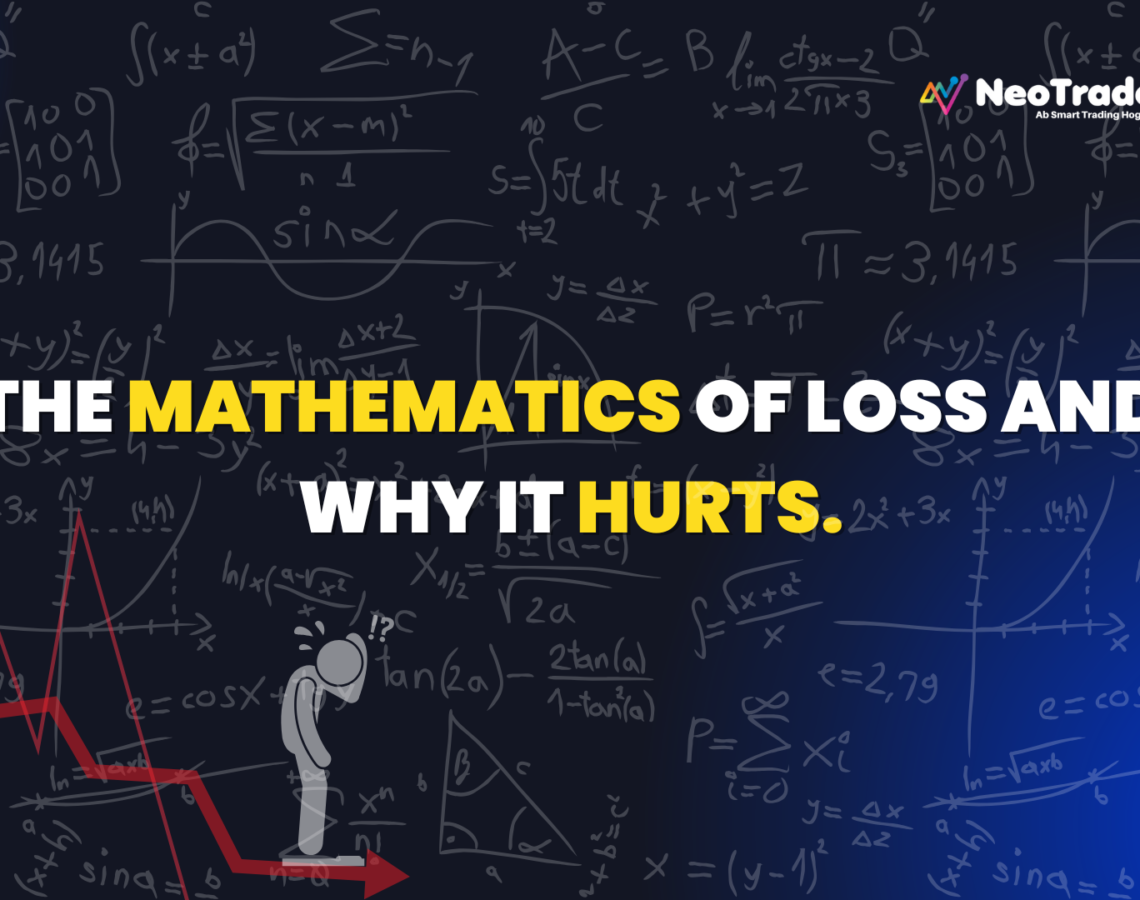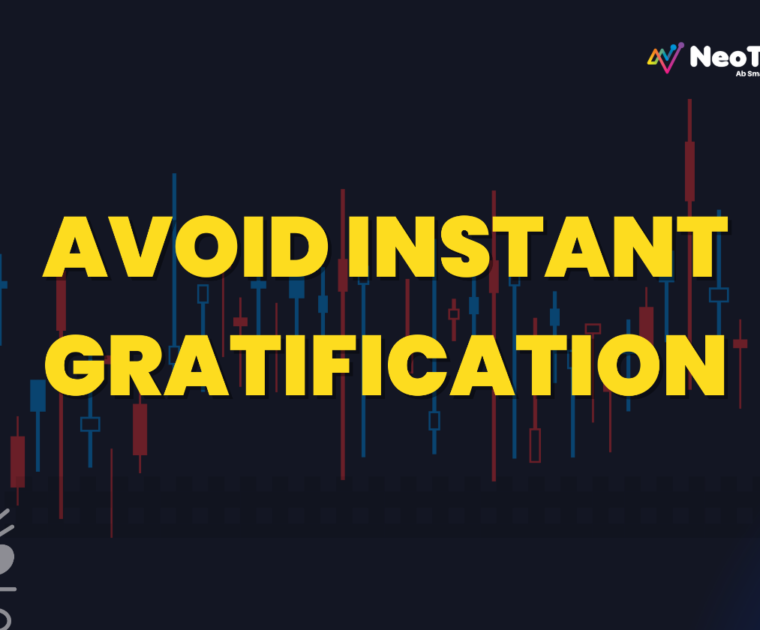THE MATHEMATICS OF LOSS AND WHY IT HURTS

We are all in this market to win. We expect to win whenever we take a trade or investment. If we didn’t expect to win, then we wouldn’t really take that trade, would we? But expecting to win in every trade that we take? If asked the question, as to whether, realistically, we can win every trade that we take, the answer would always be a no! So, here we are, on the one hand knowing that we cannot win every trade but at the same time expecting to win every hand! One of the great ironies of the market!
So, eventually, it transpires that we lose a lot of hands, much more than we win. And the hope with which we came in (i.e. to win) recedes slowly. Confidence now starts getting replaced by hope. When we operate from a perspective of hope, a good chunk of our own being gets invested into that. As losses or lack of success persists, every new trade now gets invested more and more with a part of you.
Now you have reached a point where a part of you ‘dies’ every time you take a loss. In life too, when someone you know well dies, you not only lose that person, you also lose a little bit of you that was in that person! The closer the relationship between the two people, the greater is the grief and sense of loss that you feel when someone passes away.
Just as in real life, when any part of the body (i.e. of you) is hurt, it pains. Depending on the size of the loss, the size of the hurt varies. If you substitute the person who died with a trade that went wrong, the emotional play is the same.
Overtime, this engenders a behaviour pattern of loss aversion (discussed extensive by Tverski and Kahnmann) and that is a new habit that emerges in you and it is never a good thing.
As this habit (of loss aversion) becomes more and more ingrained, you develop a new trait- of delaying all your actions (procrastination), seeking more and more validation or justification for the dictated action. In the meanwhile, the prices move (like you thought they would) and a new emotion-FOMO- comes up. And now you have to deal with that too!
If the price didn’t move as expected, you are relieved that you took time to ‘examine’ before acting and may even congratulate yourself! But this, actually, is only reinforcing the earlier belief (of loss aversion).
Realise that the more you avoid taking a decision on a trade because you fear losses, the more you get invested in the success of the trade that you do finally take. Thus, when that finally-taken trade blows up in your face, the pain is intense! It is like someone very close to you died. Mainly because there is a lot of ‘you’ that is in that trade.
When you invest a lot of money into a project, you WANT it to succeed. Same with the trades taken in the sequence that I have described above. The greater the investment, the greater the need to succeed. Hence, greater the pain when it fails.
This is the mathematics of pain and suffering. The Good Books are therefore always talking about maintaining a sense of dispassion in your dealings with life. Same to be done with your trades as well. The well-known quote of Gita comes to mind- do your duty and leave the rest up to God.
In the market, when your analysis tells you what is the needed action, just do it and leave the result to emerge. If you have analysed it correctly, then the result will be positive, else not. Markets have an additional element of controlling the risk. This is the next part of the math.
The cliché of trading is -know where you will get out if things don’t work out, otherwise known as Stoploss. Enforce that.
Think of it this way. Once you know where you will get out in profits and in loss, you can input that in the system, you are, essentially, free to do other things. Take advantage of that extra time to keep analysing the change in risk, if any. Risk is under your control. Reward is what the market gives you and you never control it. So, stop vexing about the return. Focus on risk. That is all the best traders in the world do. That is what you need to do as well.
Once you approach it this way, the amount of ‘you’ that is invested into the trade is now very low as you have already input the risk and reward levels and accepted them. Of course, there will be trades that hit your stop first and go in the way you expected originally. There will also be many trades that will go way beyond where your targets were hit. Both hurt too. But this very different kind of hurt (we will examine these emotions in a different post) but never so much as the earlier one as the You is a limited engagement.
Like everything else in trading, much of the issue is always the You! Seldom anything else.





Leave a Reply
You must be logged in to post a comment.